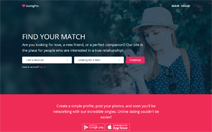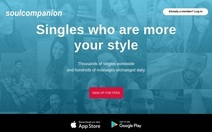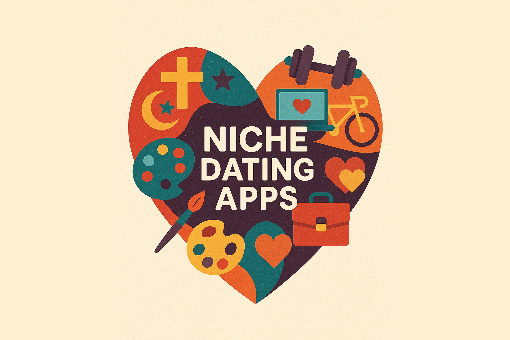Niche Dating Apps: Why They’re Booming and How to Claim Your Space
The age of “one app fits all” is fading. People are no longer excited by endless swipes, meaningless small talk, and ghost matches. What they crave now is something deeper — genuine connection based on shared values, passions, and life rhythms.
That’s where niche dating apps come in.
Instead of trying to please everyone, they focus on one specific group of people — and deliver unmatched relevance. If you’re thinking of launching a dating app in 2025, targeting a niche could be your golden ticket.
Let’s explore why niche dating apps are booming, how to develop one, promote it without burning your budget, and what it takes to succeed in this fast-evolving landscape.
Why Niche Dating Apps Are On the Rise
The global online dating market is saturated. Mainstream platforms compete with billions in marketing spend, massive tech stacks, and celebrity endorsements.
And yet, people feel lonelier than ever on them.
That’s because:
• Relevance > Reach
Niche apps speak directly to a group’s lived experiences, beliefs, or habits. When two users already share a context — like their religion, lifestyle, or job — they connect faster and deeper.
A devout Christian may feel more understood on a faith-based app than on Tinder. A gamer is more likely to hit it off with someone who gets raid schedules and Steam libraries.
• Lower acquisition costs
With a clearly defined audience, you can run highly targeted ads, tap into existing online communities, and speak their language. That makes your CAC (customer acquisition cost) lower than trying to win in a generic space.
• Stronger retention & loyalty
Users stay longer on platforms where they feel seen. They’re not just profiles in a sea of strangers — they’re members of a tribe.
• Built-in word of mouth
Niche communities naturally share tools that work. A vegan who finds love on a plant-based dating app will recommend it in every forum, group, and conversation.
• Every product feature becomes a marketing asset
Your niche is not just a setting — it’s your core identity. Everything from your app name to push notifications can reinforce your brand’s value and distinctiveness.
Real Niche Dating App Success Stories
1. JSwipe — The Tinder for Jewish Singles
JSwipe didn’t try to reinvent the wheel. Instead, it customized the dating experience for Jewish millennials, focusing on cultural and religious nuances.
• Profiles include levels of observance (Orthodox, Conservative, Reform)
• Options for keeping kosher, celebrating Jewish holidays, and observing Shabbat
• Events and blog content tailored to Jewish culture
Outcome: Over 1 million downloads and thousands of long-term relationships and marriages.
2. Muzmatch — Halal Matchmaking for Muslims
Targeting Muslim singles around the world, Muzmatch prioritized modesty, privacy, and serious intentions. It integrates culturally appropriate features that mainstream apps ignore:
• Chaperone mode — users can invite a guardian into chats
• Advanced photo privacy options
• Islamic content moderation standards
• Video selfie verification to build trust
Result: Acquired by Bumble, with over 5 million users and unmatched brand loyalty in the Muslim dating space.
3. Bristlr — For Bearded Men and Their Admirers
What started as a tongue-in-cheek idea became a viral sensation. Bristlr targeted people who either have epic facial hair or love those who do.
• Filters for beard styles and length
• Blog featuring beard care, community stories, and dating tips
• Merchandising and user-generated content campaigns
Takeaway: Hyper-specific can still scale — if you lean into the personality of your tribe.
How to Find the Right Niche for Your Dating App
Not all niches are created equal. You need to validate whether the group you’re targeting is big enough, connected enough, and underserved enough.
Here’s how:
1. Spot the Pain Point
Is your target audience currently using dating apps but feeling underserved or uncomfortable? Are they dealing with fake profiles, inappropriate messages, or a lack of understanding?
If yes — you’re onto something.
Example: Doctors and nurses often have irregular shifts. Mainstream apps don’t account for that — but a healthcare-focused app could.
2. Look for Identity Signals
A strong niche has a visible identity marker: vocabulary, habits, shared lifestyle. People in this group immediately know who’s “one of them.”
Example: Gamers talk in Steam IDs and raid schedules. Vegans care about animal rights, ethical sourcing, and plant-based living. These are social cues that can be embedded into your UI and messaging.
3. Tap Into Existing Communities
Check for:
• Active subreddits
• Telegram or Discord groups
• Facebook groups and forums
• Podcasts and influencers
• Local meetups or events
If your niche is already connecting somewhere, you can invite them into a better-designed space — your app.
4. Assess Monetization Potential
Will people in your niche pay for curated access, privacy, premium filters, or event invites?
• Is this audience used to paying for specialized tools or subscriptions?
• Would they see dating as an area worth investing in?
• Do they value trust and security enough to support premium models?
Features Your Niche Dating App MUST Include
Forget bloated feature lists. Your MVP should be focused, fast, and designed around a single question:
“What do people in this niche really need to connect?”
Core Features (non-negotiable)
• Rich profile fields tailored to your niche (faith level, profession, interest level)
• Simple but effective match algorithm (no black-box AI — users want control)
• Chat system with moderation (report, block, time limits on unread messages)
• Photo and video verification (to increase trust and reduce ghosting)
• Subscription and in-app purchases (think credits, boosts, super likes)
• Event tracking and analytics (track every step from onboarding to subscription)
Niche Enhancers (select 2–4 based on your audience)
• Faith-based filters: Include observance level, prayer times, dress code preferences
• Professional scheduling: For nurses, truckers, shift workers — match by free time
• Community clubs: Give users group spaces (book clubs, gamer nights, hiking teams)
• Safe dating tools: GPS sharing, check-in messages, or “panic button” for dates
• Icebreaker prompts: Based on niche language — “What was your first cosplay?” or “What’s your Ramadan routine?”
How to Monetize Your Dating App Without Losing Users
Monetization must feel natural — and aligned with user values.
Effective Models:
1. Subscriptions
Offer monthly/annual plans that include extra filters, visibility boosts, or access to premium users.
2. Pay-per-action credits
Let users buy boosts, gifts, or one-time access to hidden matches. Microtransactions work well when personalized.
3. Premium verification or club access
Charge for elite-level badges or entry into invitation-only rooms or chats.
4. Events & experiences
Host online or offline niche-specific events — ticketed and exclusive.
5. Brand partnerships
Collaborate with brands that align with your niche — vegan products, religious bookstores, or fitness gear.
How to Promote Your Niche Dating App (Even With a Small Budget)
You don’t need millions to promote your app — you just need focus and community alignment.
Best Channels & Tactics:
• Collaborate with micro-influencers
Choose creators who live inside the niche, not just popular creators. A Muslim YouTube creator or a gamer Twitch streamer will have more impact than a generic Instagram model.
• Run community-based ad campaigns
Use Reddit, Discord, Telegram, and podcast ads. Hyper-targeted groups convert better than broad social media traffic.
• Build a strong brand story
Why did this app need to exist? Tell your founder story, your mission, and why mainstream apps fail this group.
• Offer real value with content
Start a blog or YouTube series addressing pain points in the niche — dating while religious, how to balance work and love, etc.
• Create referral incentives
Make users proud to share your app — offer them special badges, free credits, or early access features.
Metrics to Watch When Growing a Niche Dating App
Don’t just track downloads. Track what drives connection and revenue.
• Time-to-first-match: How fast do users get a meaningful interaction?
• Reply rate on first message: Are matches leading to conversations?
• D1 / D7 / D30 retention: Who’s staying, and why?
• Conversion to real-world interaction: Events attended, dates arranged
• ARPU by source: Which channels bring paying users?
• Referral rate: Are users telling their friends?
Final Thoughts: Why Now Is the Time for Niche Dating Apps
In a digital world flooded with generic options, specificity is a superpower. A niche dating app done well is not just a product — it’s a safe space, a community, and a catalyst for real relationships.
Don’t build another Tinder.
Build something that makes someone say:
“Finally, a place where people get me.”
Ready to Build a Dating App for Your Niche?
The Dating Pro platform gives you everything you need to launch fast — from customizable templates and apps to built-in monetization tools and expert support.
Explore plans and get started
or contact our team for a free niche launch plan based on your target audience.
FAQ
What are niche dating apps?
Apps designed for specific user groups based on religion, profession, lifestyle, or shared interests.
Are niche dating apps profitable?
Yes — they often monetize better due to user loyalty and willingness to pay for relevance and privacy.
How do I create a niche dating app?
Validate your audience, build a lean MVP, use platforms like Dating Pro, test with a small group, and iterate based on data.
Best examples of niche dating apps?
JSwipe, Muzmatch, Bristlr, Veggly, HER, and Hater are just a few that proved niche wins.
How to promote a niche dating app with a small budget?
Leverage micro-influencers, join community chats, create relevant content, and offer real value through referrals and exclusivity.




